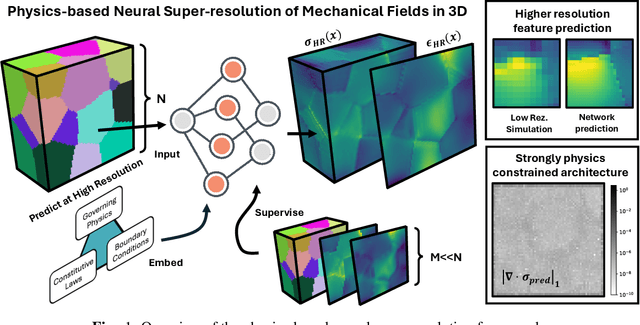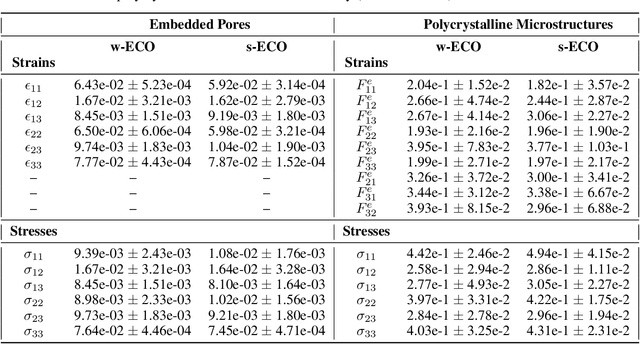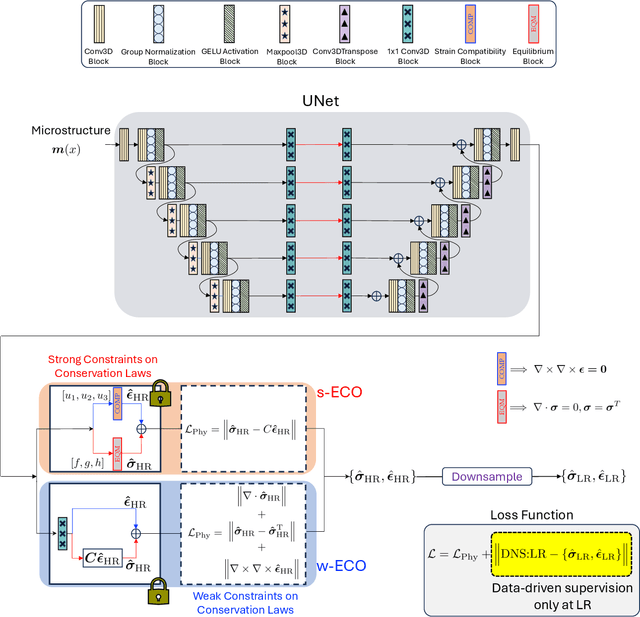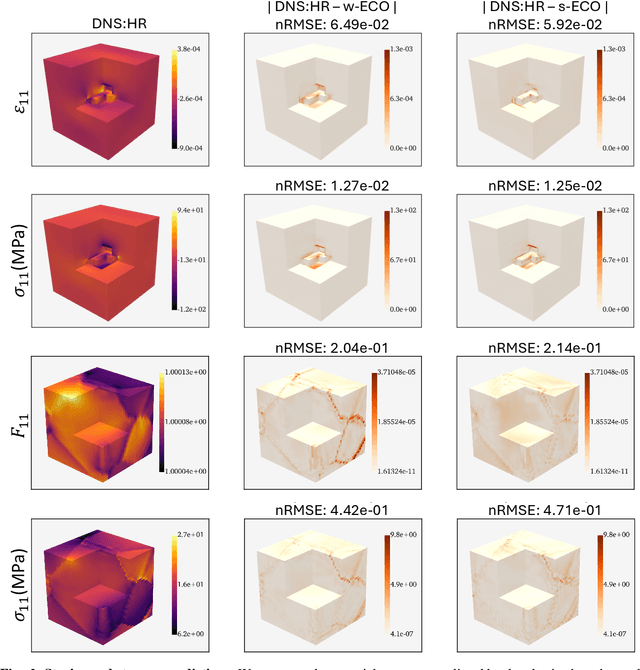Equilibrium Conserving Neural Operators for Super-Resolution Learning
Paper and Code
Apr 18, 2025



Neural surrogate solvers can estimate solutions to partial differential equations in physical problems more efficiently than standard numerical methods, but require extensive high-resolution training data. In this paper, we break this limitation; we introduce a framework for super-resolution learning in solid mechanics problems. Our approach allows one to train a high-resolution neural network using only low-resolution data. Our Equilibrium Conserving Operator (ECO) architecture embeds known physics directly into the network to make up for missing high-resolution information during training. We evaluate this ECO-based super-resolution framework that strongly enforces conservation-laws in the predicted solutions on two working examples: embedded pores in a homogenized matrix and randomly textured polycrystalline materials. ECO eliminates the reliance on high-fidelity data and reduces the upfront cost of data collection by two orders of magnitude, offering a robust pathway for resource-efficient surrogate modeling in materials modeling. ECO is readily generalizable to other physics-based problems.
 Add to Chrome
Add to Chrome Add to Firefox
Add to Firefox Add to Edge
Add to Edge